Foreign Trade and Transport in Rwanda, Kigali
Business in Rwanda, Butare, Gisenyi, Gitarama, Kigali. Logistics, tourism

The Republic of Rwanda, «the country of the thousand hills», is a landlocked country of Central Africa and Eastern Africa
- Repubulika y'u Rwanda in Kinyarwanda language
- Kigali is
the political and administrative capital of Rwanda and the largest Rwandan city (1.1 million people,
1,400 meters of Altitude)
- Kigali is in the geographical centre of Rwanda
- Largest cities of Rwanda: Kigali, Butare, Gisenyi, Gitarama and Ruhengeri
- Main economic activity in Rwanda: agriculture
- 40% of the Rwandan GDP
- 90% of the population
- Main agricultural products: coffee, tea, tobacco, bananas, beans, sorghum
- Rwanda is the sixth African tea producer
- Coffee and tea are the main cash crops for export
- Main mineral resources in Rwanda: are tin, gold, coltan (niobium and tantalum), beryl and tungsten.
- The Rwandan industry It is poorly developed
- Cement factories, processed agricultural products, furniture, soap, textile, cigarettes, footwear...
- Tourism is a fast-growing sector and is currently the Rwandan main currency contributor
- Currency of Rwanda: Rwandan Franc (RWF)
- Rwanda shares borders with Burundi (290 kilometres), Uganda (172 kilometres), the DR Congo and Tanzania
Logistics and Transportation in Rwanda
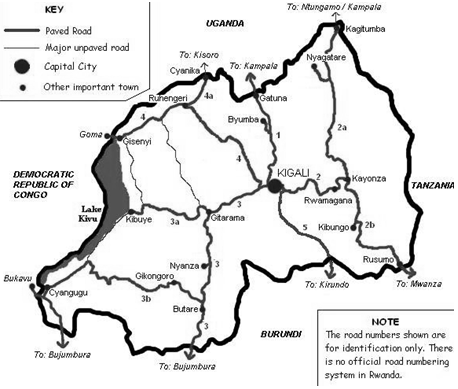
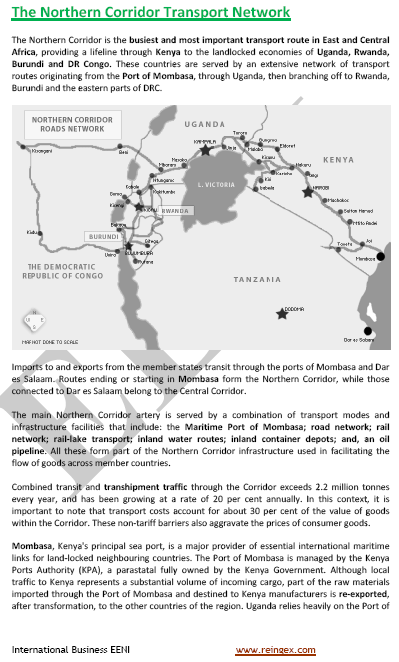

Trade and Business Organisations (Rwanda)
- Economic Community of Central African States (CEEAC)
- East African Community (EAC)
- United States-East African Community (EAC) Agreement
- Common Market for Eastern and Southern Africa (COMESA)
- COMESA-EAC-SADC Agreement Nile Basin Initiative Economic Community of the Great Lakes Region
- Conference on the Great Lakes Region
- OHADA
- International Organisation of the Francophonie
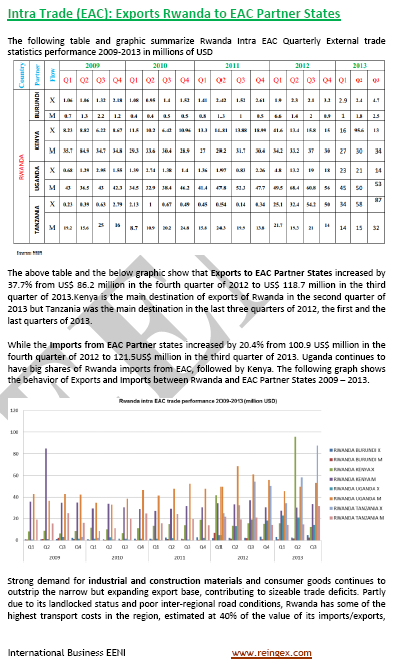
- African Union
- AUDA-NEPAD
- Economic Commission for Africa
- African Development Bank
 Rwandan Students from Rwanda
Rwandan Students from Rwanda


More information: International Trade and Business in Rwanda, at EENI Global Business School Website.
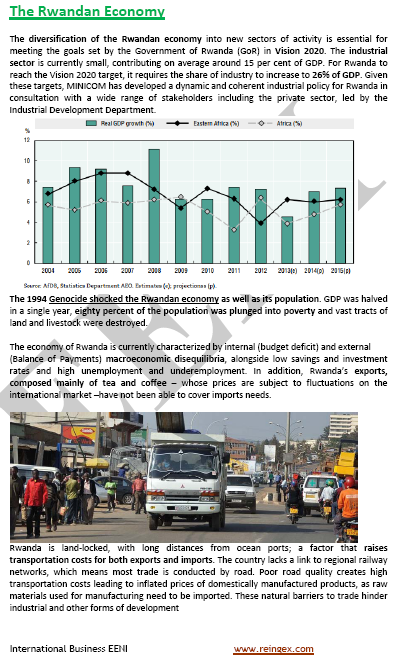
- Rwanda belongs to the Great Lakes region
- Rwanda borders to the north with several volcanoes (4,500 meters)
- The geography of Rwanda is dominated by mountains to the west and savannah to the east, with many lakes
- 1994: genocide of the Tutsi (800,000 deaths)
- Genocide destroyed the pillars of the Rwandan economy
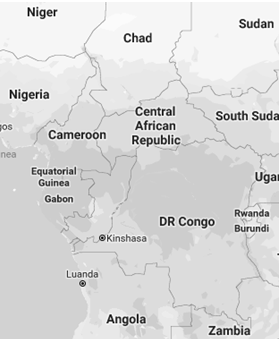
- Rwanda is a Republic
- Rwanda obtained its Independence from Belgium in 1962 (History of Rwanda)
- Calling code: 250
- Country code top-level domain: .rw
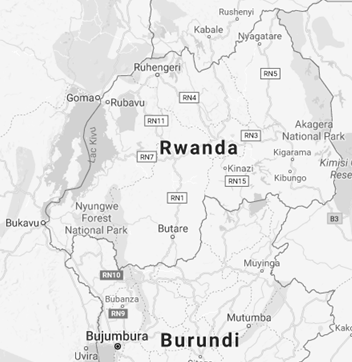
- Rwandan population: 12.6 million inhabitants
- Rwandan Population density: 456 inhabitants/km²
- Rwanda is the more densely populated African Country
- The Rwandan population is young and mainly rural
- Area of Rwanda: 26,338 km²
- Rwanda is one of the smallest countries of the African continent
Provinces of Rwanda
A strict hierarchy has governed Rwanda since the pre-colonial times. Before the colonization, the King (Mwami) exercised the control through a system of provinces, districts, hills and neighbourhoods.
The current Constitution divides Rwanda into provinces (intara), districts (uturere), cities, municipalities, cities, sectors (imirenge), cells (utugari) and villages (imidugudu); the Rwandan Parliament establishes the largest divisions and their borders.
The city of Kigali is a provincial authority.
The four Rwandan provinces are:
- Southern Province
- Western Province
- Northern Province
- Eastern Province
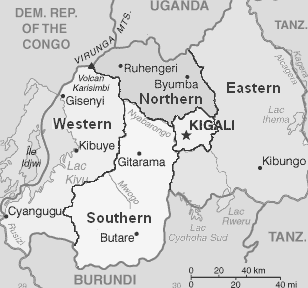
The largest cities of Rwanda are:
- Kigali
- Butare
- Gitarama
- Ruhengeri
- Gisenyi
- Byumba
- Cyangugu
- Kibuye
- Rwamagana
- Kibungo
Rwandan ethnicities:
The Rwandan people belong to a single cultural and linguistic group, the Banyarwanda, formed by three subgroups:
- Hutu (84% of the population of Rwanda)
- Tutsi (15%)
- Twa (1%, Pygmies that live in the forests and descend from the first inhabitants of Rwanda)

Religions and Global Business -
Religious diversity
Religions in Rwanda:
-
Christianity
- Catholicism (44%)
- Protestantism (38%)
- African Traditional Religions
Languages of Rwanda
The official languages of Rwanda are:
- Kinyarwanda
- Kinyarwanda is the most spoken language in Rwanda
- The first language of alphabetization in Rwanda
- French
- Only 6% of the Rwandan are francophone (OIF)
- English
- English has replaced French as the main language of schooling
- Swahili
Higher Education in Rwanda
LMD System (Bachelor, Master, Doctorate) - Ministry of Education, Science, Technology and Scientific Research
- University of Rwanda
- School of Technology of Tumba (TCT)
- Polytechnic of Umutara (UP)
- Integrated Polytechnic Regional centre Kicukiro Campus (IPRC)
- Institute of Legal Practice and Development (ILPD)
Higher Education Establishments (privates)
- Catholic Institute of Kabgayi (ICK)
- Autonomous University of Kigali (ULK)
- Institute of Agriculture, Technology and Education of Kibungo (INATEK)
- Adventist Lay Institute of Kigali (INILAK)
- Adventist University of Central and Eastern Africa (AUCA)
- Mahatma Gandhi University
- Institute of Higher Education Ruhengeri (INES)
- Catholic University of Rwanda (CUR)
- KIM University (formerly Kigali Institute of Management)
- Byumba Polytechnic (IPB)
- Protestant Institute of Arts and Social Sciences (PIASS)
- University of Tourism, Technology and Business Sciences (UTB)
- Health Institute of Kigali, Higher Institute of Agriculture and Livestock (ISAE)
- Akilah Institute for Women
Rwanda is a member of:


 Tweet
Tweet


